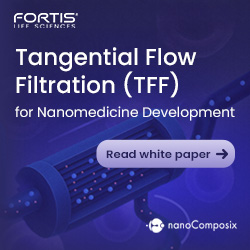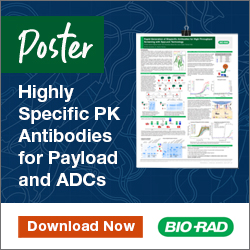Ocuphire Pharma Initiates LYNX-1 Phase 3 Study Investigating Nyxol in Night Vision Disturbances
Ocuphire Pharma, Inc. recently announced the initiation of patient recruitment and screening in late December for its LYNX-1 Phase 3 registration study evaluating the safety and efficacy of Nyxol in night vision disturbances (NVD) at multiple sites in the US.
NVD, also known as dim light vision disturbances, is a condition in which peripheral imperfections (aberrations) of the cornea scatter light when the pupil dilates in dim light conditions. These imperfections can be naturally occurring, especially with age, or surgically induced from refractive procedures such as LASIK. Patients with NVD experience glare, halos, starbursts, and decreased contrast sensitivity. The effects of NVD can be reduced or eliminated by moderately reducing pupil diameter to avoid some of the aberrations and their scattering effect, without impeding the ability to see at night. Four major patient subpopulations of NVD have been identified based on their underlying cause of aberrations: night myopia (naturally occurring), non-central cataracts, post-LASIK procedures, and post-IOL implantation. These conditions span an age range of late teenagers to those 80 years and older.
Ocuphire worked closely with the market research firm GlobalData to understand the market opportunity for NVD. The market size findings from the in-depth physician and patient surveys were larger than previously projected for this new ophthalmic indication. About 38 million individuals in the US are believed to suffer from NVD, with an estimated 16 million having moderate-to-severe NVD that may be directly addressable with a pupil management approach. Upon interview of patients who self-report NVD, 25% of them completely avoid driving at night. Furthermore, 67% who report moderate or severe NVD would be willing to try an eye drop treatment option.
“Dim light disturbances, such as nighttime glare and halos, can be visually disabling, limiting driving at dusk and nighttime and diminishing independence and quality of life. I am very happy to see that the LYNX-1 trial has begun enrollment, which brings with it the potential of an effective treatment for this prevalent condition,” said Jay Pepose, MD, PhD, Director of the Pepose Vision Institute and Professor of Clinical Ophthalmology at the Washington University School of Medicine.
Despite many addressable patients with moderate-to-severe NVD, there is no FDA-approved treatment on the market for NVD. Ocuphire believes it may have an NVD treatment option that could improve patients’ ability to see in dim light and improve their quality of life. With safety and efficacy data from seven Phase 1 and Phase 2 trials, Nyxol eye drops have demonstrated a differentiated target product profile that includes moderately reducing pupil size with durable daytime effects and no daytime redness after administration once-daily in the evening. In addition, it is manufactured as a preservative-free eye drop, which may allow for chronic use while potentially avoiding the common side effects of preservatives, such as ocular surface damage, eye irritation, and tear film instability.
“For this unmet market opportunity, Nyxol is currently the only product candidate we are aware of in development for NVD and, if approved, could become the first pharmacological daily treatment option,” said Mina Sooch, MBA, President and Chief Executive Officer of Ocuphire. “The LYNX-1 NVD Phase 3 study builds on the results of multiple Phase 2 trials, which include a Nyxol treatment response versus placebo that demonstrated a clinically significant improvement in low contrast visual acuity in mesopic conditions on a vision chart.” Sooch added, “We are also delighted to have met our goals to begin both of our Nyxol Phase 3 programs in NVD and reversal of mydriasis in the fourth quarter of 2020.”
LYNX-1 is a randomized, double-masked, placebo-controlled Phase 3 registration study designed to evaluate the safety and efficacy of Nyxol compared to placebo in patients with severe self-reported NVD. The Phase 3 trial is expected to enroll 160 patients across 15 sites in the US. Patients will be randomized to receive either Nyxol or placebo administered in each eye daily over 14 days. Treatment will be self-administered at or near bedtime each day. The primary endpoint is the percentage of subjects with at least 3 lines of improvement in mesopic, low-contrast, best-corrected distance visual acuity after 7 days. Secondary endpoints include pupil diameter reductions, other visual acuity measures (distance and near), and safety and tolerability. LYNX-1 is the first of two registration trials planned for Nyxol in this chronic indication prior to a New Drug Application (NDA) submission. Additional information about the Phase 3 trial can be found at www.clinicaltrials.gov under Clinical Trial Identifier NCT04638660.
“I had the fortune of being principal investigator of Nyxol’s first Phase 2 trial in patients with NVD (NCT04004507) where we saw promising evidence regarding the drug’s efficacy in improving contrast sensitivity and visual acuity in dim light conditions. I am very excited to see if this drug’s miotic effects can help not only patients with NVD but may also address indications such as presbyopia and reversal of mydriasis,” said Marguerite McDonald, MD, a cornea/refractive surgery specialist and Professor of Clinical Ophthalmology at the NYU Langone Medical Center.
Ocuphire is a publicly traded, clinical-stage ophthalmic biopharmaceutical company focused on developing and commercializing therapies for the treatment of several eye disorders. Ocuphire’s pipeline currently includes two small-molecule product candidates targeting front and back of the eye indications. The company’s lead product candidate, Nyxol Eye Drops, is a once-daily preservative-free eye drop formulation of phentolamine mesylate, a non-selective alpha-1 and alpha-2 adrenergic antagonist designed to reduce pupil size, and is being developed for several indications, including dim light or night vision disturbances (NVD), reversal pharmacologically induced mydriasis (RM), and presbyopia. Ocuphire’s second product candidate, APX3330, is an oral tablet, designed to inhibit angiogenesis and inflammation pathways relevant to retinal and choroidal vascular diseases, such as diabetic retinopathy (DR) and diabetic macular edema (DME). Nyxol is entering Phase 3 clinical development for NVD and RM, and Phase 2 for presbyopia. APX3330 is entering Phase 2 clinical development for DR/DME. As part of its strategy, Ocuphire will continue to explore opportunities to acquire additional ophthalmic assets and to seek strategic partners for late stage development, regulatory preparation and commercialization of drugs in key global markets. Please visit www.clinicaltrials.gov to learn more about Ocuphire’s completed Phase 2 clinical trials and ongoing Phase 3 registration trials (NCT04620213 and NCT04638660). For more information, visit www.ocuphire.com.
Total Page Views: 1331










